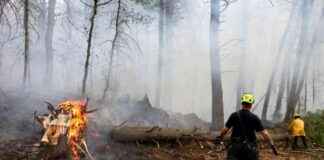# Supporting Youth Mental Health in the Face of Climate Change: Strategies for Coping
We’ve all witnessed the devastating impacts of climate change, from heat waves to wildfires to storms wreaking havoc on communities worldwide. But amidst this chaos, there is an often-overlooked victim: the emotional well-being of our young people. A growing body of research reveals that adolescents and young adults are grappling with anxiety and worry about the uncertain future shaped by a changing climate.
## Abby’s Story: A Personal Look at Climate Anxiety
Meet Abby Rafeek, a 14-year-old high school student from Gardena, California, whose life is deeply affected by the realities of climate change. Abby’s concerns are not hypothetical – they are personal. Living just miles away from raging wildfires, she experiences firsthand the devastation and the toll it takes on her community and the environment. The air quality worsens, and the damage is tangible.
In a survey conducted at the Children’s Hospital of Orange County, Abby, like many others her age, expressed her fears and anxieties about the future. But Abby is not alone in her struggles. Dr. Rammy Assaf, a pediatric emergency physician, reveals that climate change is a pressing issue affecting the emotional security and well-being of young people, echoing Abby’s sentiments of helplessness and hopelessness.
## The Impact on Youth Mental Health: A Global Concern
Research shows that Abby’s experiences are not unique. A 2022 Harris Poll found that 89% of U.S. teenagers worry about the environment, with many feeling more anxious than hopeful. Globally, a survey of 10,000 young adults across ten countries revealed that a significant majority are worried about climate change and its implications.
Dr. Susan Clayton, a psychology expert, notes that climate anxiety is especially pronounced among younger generations. Unlike older adults, who may not have grown up with the same awareness of climate change, adolescents face a stark reality: their future is at stake. The sense of betrayal by governments failing to address the crisis exacerbates their anxiety and fear about what lies ahead.
## Empowering Youth and Taking Action
If you are a parent or caregiver of a child struggling with climate anxiety, there are steps you can take to support them. Professor Louise Chawla emphasizes the importance of listening to children openly and creating a safe space for them to express their emotions. Engaging in family activities that promote environmental stewardship, such as cleanups or advocacy efforts, can empower young people to make a difference and combat feelings of helplessness.
Dr. Vickie Mays, a mental health expert, encourages reframing climate worries as opportunities for learning and activism. By channeling these concerns into advocacy and education, young people can transform their fears into a force for positive change.
As we confront the complex intersection of climate change and mental health, it is crucial to listen, support, and empower our youth to navigate these challenges and shape a more sustainable future. Together, we can build resilience and hope in the face of uncertainty, ensuring that our young people thrive amidst adversity.














